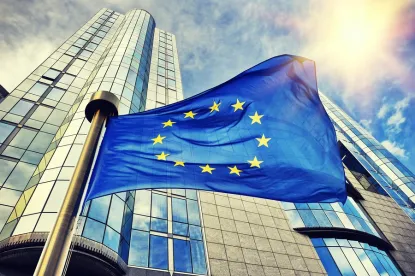A. UOKiK investigates care dealers.
On June 8, 2021, the Polish Competition Authority (UOKiK) launched exploratory proceedings to verify whether certain practices related to sales of Kia vehicles infringe competition law provisions. UOKiK suspects that Kia Polska and Kia car dealers may have concluded anticompetitive agreements related to market sharing, price fixing, and bid rigging.
Although at this stage no proceedings are being conducted against particular entities, UOKiK has already conducted on-premise searches with respect to four entrepreneurs. If evidence gathered by UOKiK confirms its initial suspicions, antitrust proceedings against the entrepreneurs will be launched. Such antitrust proceedings may end in a fine being imposed on each entity of up to 10% of the entity’s annual turnover generated in the preceding year. Additionally, UOKiK may impose a per-infringement fine of up to PLN 2 million on persons performing managerial functions who, in connection with performing their functions, at the time of the ascertained infringement, intentionally allowed an infringement, through action or omission.
B. UOKiK investigates discount policies of Kaufland Polskie Markety.
On June 23, 2021, the president of UOKiK instigated proceedings against the owner of the Kaufland chain in Poland, questioning the cooperation between the chain and its agri-food suppliers. Primarily, UOKiK’s concerns relate to the circumstances under which contract negotiations with Kaufland are conducted. UOKiK claims that between the beginning of a given year and the date of executing the contract, suppliers are not aware of the terms of their cooperation with Kaufland. As the authority observed, during this period, the existing discounts increase, certain additional discounts are imposed in the new contract, and suppliers are required to pay Kaufland Polska Markety compensation. In addition, Kaufland is said to impose an additional discount, not included in the contract, on some of its agri-food suppliers. In UOKiK’s view, this causes uncertainty for suppliers with respect to the timing and level of the discount required from them.
The proceedings in question are closely related to UOKiK’s recent actions targeting certain types of discounts used by chain stores, summarized in its report on trade discounts applied in relations between large trade networks operating in Poland and suppliers of agricultural or food products published at the end of April 2021. For further information, please see the June 2021 edition of Competition Currents.
Italy
A. Italian Competition Authority (ICA)
1. ICA opens an investigation into an alleged abuse of dominance in the Italian market for modular cable and pipe sealing systems.
On June 14, 2021, the ICA announced the opening of an investigation against Roxtec AB, the world leader in cable and pipe sealing systems, and its Italian subsidiary, Roxtec Italia S.r.l., to ascertain whether the two companies have abused their dominant position in violation of Article 102 of the TFEU.
The investigation was initiated following a competitor complaint that reported the adoption of an exclusionary strategy by Roxtec, aimed at preventing competing undertakings from producing and marketing modular sealing systems (so-called multi-diameter cable gland modules) based on the technology covered by patent EP no. 0429916B1, acquired by the same company in 1990 and expired in 2010. According to the Authority, the two companies, which hold a share of more than 60% of the national market for the production of modular sealing systems, have used administrative and judicial procedures in order to extend the monopoly position held while the patent was in force.
In particular, allegedly they have filed multiple applications with the European Union Intellectual Property Office for the registration of EU trademarks, all concerning the same image of the product with different colors, some of which were declared illegitimate by the Court of Justice of the EU. Moreover, the ICA reported that the procurement of a high number – more than 250 – of product certifications that were allegedly unnecessary and expensive to obtain, was aimed at raising a strategic barrier to entry in the relevant market. In addition, Roxtec has initiated numerous legal actions against the complainant which, due to their number, timing, modalities and object, were considered specious by the Authority.
The parties’ lawyers were given 60 days to exercise their right to be heard by the ICA, which has until April 30, 2022, to complete its investigation.
2. ICA opens an investigation on a possible bid rigging concerning maintenance services for the Milano Serravalle highway.
On June 14, 2021, the ICA published its decision to open proceedings to investigate a potential bid rigging between three Italian operators active in the construction of highways and other infrastructure. This agreement, if confirmed, would have covered the award of three lots in the framework of a tender for maintenance services concerning the highway Milano-Serravalle.
On May 16, 2021, ICA received a complaint regarding possible anticompetitive conducs and, subsequent to several requests for information, found a series of elements deemed indicative of possible collusion between the above-mentioned operators. The first element was the symmetrical decision by the companies in question to request that the others act as a subcontractor; because Italian law prohibits a subcontractor from directly bidding for the same lot for which it acts as subcontractor, this symmetrical decision meant that each company was bound by law not to submit a bid for two of the three lots. Other indicators of the potential anticompetitive collusion concerned the reductions offered by the companies: in the three lots to be tendered such reductions were not too far apart (between 20% and 26%) and significantly lower than those of the bids awarded in the previous procedures (which were positioned between about 42% and 46%).
The parties’ lawyers were given 60 days to exercise their right to be heard by the Authority. ICA has until Dec. 31, 2022, to complete its investigation.
3. ICA opens an investigation concerning abuses in the waste management sector.
On May 18, 2021, the ICA opened an investigation into the following undertakings:
(i) Erion Weee consortium (Erion) – a collective management system for waste electrical and electronic equipment, incorporated on Oct. 1, 2020, following the merger of the Ecodom and Remedia consortia;
(ii) the consortium Erion Compliance Organization S.c.a.r.l. (ECO);
(iii) the service company Remedia Tecnologie e Servizi per il Riciclo S.r.l. (Remedia TSR); and
(iv) two other companies active in the waste management of electrical and electronic equipment.
The investigation concerns the management of electrical and electronic equipment waste—specifically the collection, transportation, treatment, recovery, and environmentally compatible disposal of electrical and electronic waste equipment.
The ICA is investigating the best price clause included, by Ecodom first and then also by Erion, in agreements with treatment plants, under which the plants were obliged to guarantee Ecodom the best possible transport and treatment tariffs. Secondly, the ICA will investigate the possible strategic use by Erion (previously by Ecodom and Remedia) of the reserves generated by excess profits for exclusionary purposes to artificially reduce the amount of the environmental contribution offered to producers, with a view to retain adhering producers and acquire new ones, to the prejudice of competing systems. Last, the ICA is investigating the clause, contained in Erion's bylaws, under which the treatment plants are required to guarantee the latter the best possible transport and treatment tariffs.
Having considered that the conduct of Erion, ECO, and Remedia, TSR is likely to constitute one or more infringements of Article 102 TFEU, the ICA has decided to open an investigation, giving the parties a deadline of 45 days from the date of notification of the measure to exercise their right to be heard.
European Union
A. European Commission
1. Status regarding review HBER.
In May 2021, the European Commission completed its review of the horizontal block exemption regulations and guidelines. Both proved useful and relevant instruments, but the review identified a number of potential problems.
Among other things, the scope of the Research and Development Block Exemption Regulation does not appear to make it possible to identify all categories of agreements that meet the conditions for exemption under Article 101(3) TFEU. In particular, small and medium-sized enterprises (SMEs) find it difficult to assess their R&D agreements themselves and therefore sometimes refrain from entering into such agreements. Furthermore, R&D agreements with research institutes and/or academic institutions are a thorny issue, as it is not always clear whether they should be considered competing undertakings according to the definitions of the Regulation. With regard to the Specialization Block Exemption Regulation, the definition of unilateral specialization agreements may hinder the conclusion of pro-competitive agreements and here, too, SMEs found it difficult to assess their specialization agreements themselves. It was generally suggested that the rules in the Block Exemption Regulations and the Horizontal Guidelines are insufficiently adapted to recent market developments. This applies in particular to developments in the field of digitalization and the pursuit of sustainability goals.
The Commission has made several policy proposals. For instance, the Commission will examine options to ensure that the current rules do not discourage SMEs, research institutes, and/or academic institutions from participating in R&D and specialization agreements that do not raise competition concerns. This includes the possibility of creating a specific category of R&D agreements and specialization agreements covered by the R&D Block Exemption or Specialization Block Exemption, as well as clarifying the definitions of competing undertakings in case research institutes and/or academic bodies are involved in R&D agreements. Furthermore, the Commission will consider broadening the scope of the Specialization Block Exemption by extending the definition of unilateral specialization to more parties.
B. The General Court annuls the Commission decision approving State aid granted by Germany to Condor.
In an April 2020, the European Commission (EC) authorized an aid granted by Germany in favor of an airline, Condor Flugdienst, in the form of two loans amounting to Euro 550 million. The measure was aimed at compensating damages borne by Condor as a consequence of travel restrictions imposed during the COVID-19 pandemic.
The decision was challenged by Ryanair before the General Court (GC) on the grounds that the EC failed to adequately state reasons as to the compatibility of the notified measure. According to Ryanair, the EC did not provide any explanation of the reasons which led it to include, in calculating the damage which the aid measure intended to compensate, the costs associated with the extension of the period of Condor’s insolvency following its abortive sale to a potential investor. At the outset, the GC stressed that, under Article 107(2) TFEU, only economic damage directly caused by natural disasters or exceptional occurrences may be compensated through State aid (i.e., there must a direct link between the damage caused by the exceptional occurrence and the State aid). The GC then pointed out that the EC did not explain why it was legitimate to add the additional costs incurred due to the extension of Condor’s insolvency proceedings to the damage claimed.
In light of the above, on June 9, 2021, the GC annulled the decision on the grounds that it did not contain an adequate statement of reasons as regards the direct causal link between the costs derived from the extension of the insolvency period and the flight cancellations and rescheduling caused by the travel restrictions. As already seen in other recent cases, the GC suspended the effects of the annulment pending the adoption of a new decision by the EC, stressing that the immediate calling into question of sums granted pursuant to the aid measure would have harmful consequences for the German economy in an economic and social context already seriously impacted by the pandemic.
Edoardo Gambaro, Pamela J. Marple, Yuji Ogiwara, Stephen M. Pepper, Gillian Sproul, Hans Urlus, Dawn (Dan) Zhang, Mari Arakawa, Filip Drgas, Marta Kownacka, Pietro Missanelli, Massimiliano Pizzonia, Anna Celejewska-Rajchert, Jose Abel Rivera-Pedroza, Ippei Suzuki, Rebecca Tracy Rotem, and Alan W. Hersh contributed to this article.







 />i
/>i

